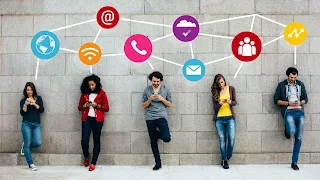Social Media and our Future Generation
by Sher Muhammad Khan
Social media has become a ubiquitous part of life in Pakistan, with millions of people using platforms such as Facebook, Twitter, Instagram, and YouTube on a daily basis. The growth of social media usage in the country has been driven by factors such as increasing internet penetration, the availability of affordable smartphones, and the rise of digital literacy among the population.
Youth engagement on social media refers to the extent to
which young people participate and interact with various social media platforms
and services. Social media has become an integral part of many young people's
lives, providing them with opportunities to connect with friends and family,
access information, and participate in online communities.
In recent years, youth engagement on social media has grown
rapidly, with more and more young people using social media to share their
thoughts, opinions, and experiences. This increased engagement has also led to
a growing concern about the potential negative effects of social media, such as
cyberbullying, online addiction, and the spread of misinformation.
Despite these concerns, there are also many positive aspects
of youth engagement on social media. For example, social media can be an
effective tool for young people to connect with others who share similar
interests, to learn about the world around them, and to express themselves
creatively.
To maximize the positive benefits of social media and
minimize the negative effects, it is important for young people to use social
media responsibly and critically. This means being mindful of the information
they share, considering the potential consequences of their online behavior,
and being respectful of others when engaging with them online
Another important aspect of social media in Pakistan is its
potential as a marketing tool. Businesses of all sizes can use social media to
reach a large and diverse audience at a relatively low cost. This is especially
important for small and medium-sized enterprises (SMEs) in Pakistan, which
often struggle to compete with larger businesses due to limited budgets. Social
media allows SMEs to reach potential customers in new and innovative ways, and
can help them to build their brand and increase their visibility.
In addition to its potential as a marketing tool, social
media also offers a wealth of opportunities for entrepreneurs and freelancers
in Pakistan. For example, individuals with digital marketing skills can start
their own social media management businesses, helping other companies to build
their online presence and reach new customers. Similarly, graphic designers,
content creators, and other digital professionals can leverage social media to
promote their services and find new clients.
However, despite its many benefits, social media in Pakistan also faces a number of challenges. One of the biggest challenges is the lack of regulation and oversight, which has led to the spread of misinformation, hate speech, and fake news on social media platforms. The government of Pakistan is aware of these issues, and is working to establish policies and guidelines to promote responsible use of social media and ensure that it is used for positive purposes.
Another challenge facing social media in Pakistan is privacy
and security. As more and more personal information is shared online, the risk
of data breaches and cyber attacks is increasing. The government of Pakistan is
taking steps to address these issues, such as by investing in cyber security
infrastructure and training programs for digital professionals.
In conclusion, social media in Pakistan holds a bright future
and offers a wealth of opportunities for users and businesses alike. Whether it
is used for connecting with friends and family, finding job opportunities,
promoting products and services, or starting new ventures, social media is
likely to play an increasingly important role in the lives of Pakistanis in the
years to come. However, it is also important to ensure that social media is
used responsibly and ethically, and that measures are taken to protect users'
privacy and security.

.jpg)


.png)



.png)

0 Comments